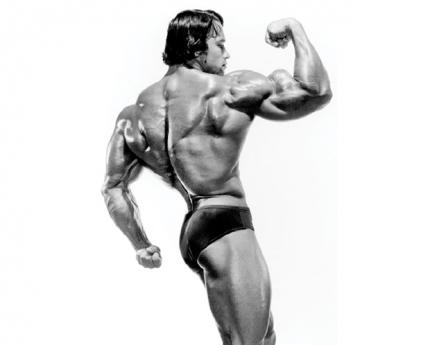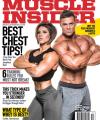Muscle Diet


How Bodybuilders Of The 70s Revolutionized Nutrition
As bodybuilders, physique athletes, and just guys who want to build muscle and burn fat, we should be proud of the evolution of our sport! Lifting weights started as an obscure activity practiced by outcasts. Athletes and coaches criticized the concept of lifting weights because it made people “muscle bound,” which was assumed to impair proper movement, speed, and power. Of course, today you’d sound like a total dinosaur if you made these assertions, but starting in the last half of the last century, these were well-established biases. In fact, you can still find people today who have these antiquated opinions!
Bodybuilders should also be proud of how they revolutionized nutrition. Without reading any scientific research or obtaining any specific education, bodybuilders pretty much cracked 90 percent of the important nutritional strategies to build lean muscle in the off-season and get shredded pre-contest!
Starting in the ‘60s and ‘70s, discussion and discourse on optimal nutrition for building muscle and shedding fat became commonplace among bodybuilders. Before long, the bodybuilding communities in Southern California had practically come to a consensus that meals should consist of mostly meat, eggs, fish or dairy, vegetables, some fruit, and moderate amounts of starchy foods (mostly in the form of rice and potatoes). Much of the starch and sugar would be eaten post-workout, and it would be limited in the months leading up to contest time, so they even got the nutrient timing correct!
It’s no small feat that they came to these wise conclusions, because at the time, the dietetic community and government agencies were sowing the seeds to limit fat intake, reduce meat intake, and increase the proportion of carbs in the diet. This is exactly how government dietary recommendations evolved. Despite what most reasonably informed gym-goers know today, many “expert” dieticians still advise clients to eat a very high proportion of carbs, to decrease fat and saturated fat, and to not eat too much protein. Not only did bodybuilders figure out the best diet for their goals (and for health), they actually did a far better job than the entire dietetic community and governments over the course of 40 years! They also did it at a time when foods didn’t even list the calories or macros! Only in the last few years have dieticians begun to admit that they can no longer ignore the huge and growing mountain of evidence that replacing carbs with protein in the diet, that fat isn’t “bad,” and that government recommendations still don’t reflect their scientific evidence.
Another interesting point bodybuilders figured out back then is to avoid bulking up excessively in the off-season. This became a regular practice in the ‘80s and ‘90s, but these days, guys have realized that as they approach their genetic potential for muscle growth from years of heavy training, getting too many calories in the off-season just makes it harder to diet down and probably contributes to the oversized midsections we see onstage.
So Arnold and his crew back in the ‘70s figured out most of the important stuff by regular discussion and trial and error, but there were a few questionable practices too. One is that they usually stuck to just three meals per day. Optimally, eating at least four or five meals stimulates the muscle-building process more. Many also drank vast amounts of whole milk, which, although it contained high-quality protein, delivered most of its calories from sugar (lactose) and fat. That said, several studies have correlated full-fat dairy products with smaller waistlines than reduced-fat dairy products, so maybe they had this one right too!
The moral of this story is that although most “regular” people think of bodybuilders as huge lunkheads without much grey matter, when motivated, they seem to be able to outwit highly educated academics, politicians, and civil servants!
For more information about Arnold-Era Nutrition and Supplementation, check out this article!

